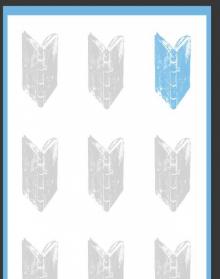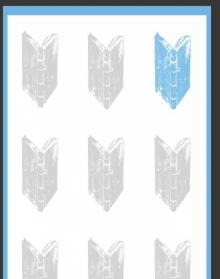- Home
- Storm Jameson
The Black Laurel Page 13
The Black Laurel Read online
Page 13
He cut short the sentence Leist was beginning.
“No, that’s done with. . . Now, do you know what I am? No, why should you? My name is Kalitin. I belong to the Security section, and it happens that your papers came into my hands. Perhaps it was not an accident — after all, you surrendered to me, with your ridiculous flag.”
He went off into a fit of laughter.
“If you had seen yourself standing! Exactly like a trained bear — I saw one in Kiev when I was a boy.”
Leist smiled, with a rancour he could not hide. The Russian did not notice it; he went on in a quick light voice,
“Did you expect you had only to offer yourself as a convert and we should take you in our arms? No, no, you’re not a fool. In fact, I’ve been able to find out more about you than you told us yourself — we captured a friend of yours at Stalingrad, an intelligent man, let me tell you. If you listen to the wireless you may have heard his voice last winter from Moscow. No names, no penalties — but he gives you an excellent character. I look forward to our talks. . . But first — is there nothing you want to know? The war —?”
He moved his hand as if he were scattering something — grain. . .
Leist hesitated. More than anything he wanted to know the fate of Dresden. In the camp he had heard rumours, one terrible. But was it wise to show interest?
It was too strong for him.
“Is it true that, three months since, Dresden was destroyed? Completely?”
“Yes, almost,” Kalitin said drily. “We occupied it ten days ago. Ever since we’ve been making up stacks of bodies in the market-place and turning flame-throwers on them. The others are living like rats or savages. We’re killing ourselves to feed them!”
Leist saw a corner of the Altmarkt he had never passed without feeling joy that it existed. Forgetting himself, he leaned against the wall.
A way of turning this anguish to account struck him.
“Well, ask yourself,” he said, between his teeth, “whether I want to wipe out the society that brought this on us.”
Kalitin jumped up — he could never be still long — and began prowling about the room. He was smiling, with a point of contempt.
“What use is revenge? One must build on something sound. Tell me — what were you before you became a scholar? A peasant? A poor student? Tell me the truth. . .”
Nothing in his wide experience of men helped him to understand Kalitin. He believed — his life had taught him to believe it — that any man can be approached through his vanity; you have only to find on what he prides himself (perhaps unknowingly), and stroke that: you can seize him by his charity or his devotion as easily as by a crude vice. Kalitin was openly proud of his supple body, and of his gifts as a linguist. He flaunted these, but only a fool would have missed seeing that they meant to him exactly what his instruments mean to a surgeon. Leist could find no foothold. He saw Kalitin two or three times a month; they became friendly: that is to say, Kalitin was very friendly, almost benevolent — and relentlessly impersonal. It was rather like being visited by an amiable young wild cat.
In an effort to make the Russian self-conscious, he said,
“You talk to me about logic — as if there were a trace of logic in your acts! You contradict yourself with every breath.”
“I?” Kalitin exclaimed. “What nonsense!”
He was not even interested. Yet it was true: his intellect was as restless as his body, overcharged with curiosity, and — he was not only shockingly ignorant about all other countries than Russia, he ignored them: his senses, so fine that he hated to touch a rough cloth, were satisfied with the least trouble, he could work for days without food, he really preferred to sleep on boards or the bare ground (perhaps from pride in the force of his body). In anything to do with his job he had the patience of his peasant grandfathers, but one day, when he was with Leist —
He had his beloved binoculars with him; they had developed a fault of some kind, so that he could not adjust them properly. He had worked on them for a short time — suddenly he threw them with all his force on the ground, stamped on them, jumped on them with both feet, and kicked the useless remains out of sight under a desk.
The strangest thing to Leist was not this terrifying impatience, but Kalitin’s pleasure in it. He was not even lightly ashamed of the outburst. He laughed, and immediately forgot it.
He would have shot me with as little reflection, Leist thought.
Was it this in him — this rage you could neither predict nor manage — that made him a disquieting companion in a small room? Partly. Leist’s ideas became more precise without for that leaving him less baffled. Most men, he reflected, are vulnerable because they fall over the contradictions in themselves and try anxiously — anxious spiders — to drag them together. Kalitin never looks at himself, nor cares.
He watched Kalitin looking at a piece of quartz he had picked out of the rubble of a shop. He was sunk in it, as self-forgetting as a child. Frowning lightly, his lips thrust forward, he stroked it, weighed it in his hand, drawing it delicately into himself.
“Have you discovered something in it?”
Kalitin started. He slipped the thing into his pocket.
“No.”
For a mathematician, a man who reads mathematical philosophers in two foreign languages, in English and German, he is really childish. Only a child identifies himself with an object he is not even using. And how is it that, with his restless mind, he is never discontented? Is there nothing he wants?
Every human being needs, or once or twice in his life, the illusion of intimacy. Surely?
He was ready to believe — what as a scholar he could not believe — that Kalitin was a new sort of human being: without nostalgia, without doubts or longings: living himself with barbaric energy and greed. A man who willed himself, without for all that willing to be consistent.
He seized a chance Kalitin gave him, to ask,
“What do you expect to do after the war?”
“Work. Marry and have children.”
“I wonder what you’ll be like when you’re old,” Leist said slyly.
Kalitin went off into a fit of laughter.
“Old? What makes you think I shall live to be old? If I do, I shall go to the Crimea and grow wine. And drink it, and tell my daughters-in-law that they don’t know how to bring up children.”
With a bitter anger, Leist reflected that he was a prisoner, he had been defeated, he was impotent. He made an effort to keep the hatred out of his voice.
“I wish you luck.”
His conversion — what a word for a process so wholly willed — occupied a further two months. He spent a month in Moscow: at the end of this time he was sent to Berlin.
Kalb had irritated him. He resented the little creature’s friendliness, and, yes, his innocence. Who in this world has an excuse for being so simple-minded, so resolute in believing in goodness? In its way it was a provocation.
He shook himself to get rid of the sting.
He had ceased to notice the squalid ruins. They were no longer the bones of a city, but the necessary scaffolding of his will: he bent it on the man he expected to see in a few minutes, his former patron. His friendship — it was almost that — with Baron von Rechberg went back over more than twenty years, to the summer of 1924. He was then twenty-three. Sent, when he was sixteen, after only five weeks’ training, to a battalion in front of Verdun, he learned two lessons quickly and very thoroughly: a human being has no natural dignity; nature lends him only his life, and he is lucky if he can keep this meagre loan long enough to make a profit.
He survived.
After the war, his father, a lower-grade civil servant, retired, who by atrocious efforts had saved money, sent him to Berlin university. He was there when the Inflation turned all savings to a handful of dust, overnight: old Leist killed himself and his wife; he had first sold and eaten everything, the furniture of his flat and his wife’s clothes: there was nothing for their son except the
brief letter of apology he left — I regret I cannot help you to finish your course. You must forgive both of us.
After this the boy lived in such misery that he looked back to Verdun as a time of ease. By this trick and that, some of them horrible, he managed to eat. He descended during this time to depths of disgust, of himself, and disillusionment about human nature — men were to be despised, compelled, violated. It was when he was at the end of his strength that he crossed some invisible frontier (in the fairy-tales the abandoned child throws himself down a well to find another and friendly country at the bottom) and found that he could go on: an energy which sprang from his hate fed him.
He was twenty-four: he had taken his doctorate in history. And at this moment when he had no future, he came down with a form of typhus.
It saved him, because the hospital authorities wrote to his only relative, his mother’s father. The old man, a tenant farmer on the Rechberg estate in East Prussia, came to Berlin and took him back with him to the village to be nursed. He was strong, he had the strength as well as the look of his mother’s peasant family, and he recovered, completely.
Rechberg, ten years older than he was, took an interest in him, and gave him the run of the library in Gerdnau. One day when the young man was there he asked his opinion of twelve chairs he had bought, supposed to be seventeenth-century. Leist passed his hands over them and insisted that three out of the twelve were clever fakes; he could detect a difference in the wood. It turned out that he was right. Impressed, the baron sketched out for him a career as an expert: he began buying furniture, for Rechberg first, then for other private collectors; he studied painting, became an historian as well as an expert, became known; Rechberg sent him to America, to Italy — he made no mistakes, he had no humbling doubts or passions. Yes, he had one wish — to separate himself so completely from men that he could use as well as despise them.
He had a brusque unaffected manner. Rechberg, his other clients, his colleagues, knew they could depend on him. . .
Could this be the house? A street, badly damaged, of tall houses disfigured by a growth — trolls and horses’ heads. The door, attached by a single hinge, was propped open. He went in. A narrow hall, dark, the used air of an underground lavatory, a flight of worn stairs. A tenement, housing any number of families. He chose the first door on the right, and knocked. A woman’s voice, cracked and domineering, said,
“Come in, come in.”
The room was so crowded with furniture — it was like a show-room — that in the first moment he did not see the woman. In a black dress and black cloak, and leaning against dark curtains, she was hidden, until she moved so that light fell on a face as fine as a blade — the arched nose, long arrogant mouth, colourless hair, of Rechberg’s elder sister, wife of their neighbour at Gerdnau. Since he last saw her, a year or two since, she had aged by at least twenty years. She trembled continually, all over her gaunt shapeless body. She recognised him, and spoke with polite condescension — what was he, except the grandson of one of her brother’s peasants?
“Have you come for something, my man?”
Against his will, he felt clumsy and inferior.
“I hoped to see the baron.”
“So they didn’t kill you?”
“No, madam.”
She looked at him with curiosity.
“Why didn’t they kill you?”
“Who?”
“The bolsheviks, of course.”
He had begun to think that she might be a little dotty. He said cautiously,
“No, but why should they kill me?”
“Oh, isn’t it their habit?” she said, with indifference. “They killed my husband, and my brother-in-law and his wife. Bang, bang, slash, slash, slash —”
With her fine hands, a little deformed by gout, she made the gesture of drawing a knife across a throat.
“They cut off my sister-in-law’s fingers to take her rings — I always told her she wore far too many, but she was a stupid tasteless woman, a real Boche, as the French say. It serves her right.”
Taken aback, he said,
“I’m thankful you escaped, madam.”
“They overlooked me,” she said calmly. “The next morning they went on. I had one of the carts loaded with everything in my room and I drove it here.”
“And you weren’t stopped?”
“Why should I be?”
As if driving a cart through a ravaged and terror-stricken countryside, across the lines of march of two armies, one advancing, the other in disorderly flight, were the natural thing to do. His presence in the room seemed to bore her.
“Must you really see the baron now? If you wish, I can call him. He has the room above this.”
“I should be very much obliged.”
She went out. Leist stared round him, astonished. The walls were hidden by paintings, many of them atrocious, frame wedged against frame; there was an Empire bed in pale gilded walnut, armchairs, cabinets, ikons; there seemed to be four or five carpets under the rug, itself worth a ransom; a bewildering number of tortoise-shell and brass tables held bronzes, painted snuff-boxes, ostrich eggs, Tanagra figures, plates in agate, enamel, onyx. He was fingering a piece of jade when the door opened again and Rechberg came in.
He walked with a limp — one leg, broken in an accident when he was a boy, was shorter than the other — leaning on a stick. As always, Leist saw him as a clown, a well-bred well-dressed clown: the eyes, quite round, flat sinewy ears like an ape, and in his way of greeting or listening to you, an air of absent-minded and charming courtesy.
“My dear Leist. When did you leave Warsaw?”
“In January.”
“Really? Why, that’s seven months ago.”
Leist ignored this. Pointing round the room, he said,
“I don’t see here any of the pictures I sent you from the Rothschild collection in Paris, nor the Lazienki Rembrandt. Didn’t you save any of them?”
Rechberg’s voice, remaining calm, became as overbearing as his sister’s.
“They’re not lost. That’s to say, I’ve lost them — but they’re undamaged. There’s no reason to suppose that anyone will connect me, or you, with them. The fact is, when I moved them from Gerdnau a year ago I stored them in Hilfrich’s cellars — excellent cellars they are — under his Grunewald house. And there they are, and I suppose in due time the English will find them. But nothing, fortunately, since Hilfrich before he died destroyed his papers — nothing, that is, except the treachery of a servant from Gerdnau — which we can rule out — associates me with them. In any way.”
Leist felt certain he was lying. He had caught a rough thread of anxiety in the disdainful voice.
“Splendid,” he said, with a smile.
Chapter Eleven
There is a touch of absurdity in giving a man luncheon in his house, which you are occupying as conqueror. Rechberg ignored it. He limped into his own library, his glance marking
as much interest in the room as a guest would feel seeing it not for the first time — nothing more. Gary said, smiling,
“I feel that you’re my host. Forgive me when I seem to be expecting you to behave in that way — will you?”
“I might quite easily have been your landlord,” Rechberg said. “The house was let for a time to one of my cousins. He was a careless fellow, much less reliable as a tenant than you’ll be.”
“I shall do my best.”
Rechberg smiled with strange timidity and innocence.
“After all, I’m lucky. A bomb might have destroyed the house. . . Tell me, did London suffer much?”
“In comparison with Berlin — no.”
“And your own house? My father used to speak almost with reverence about your pictures. I hope —?”
The elder Rechberg, with his severity of a Lutheran pastor and a horse, would disapprove of his son’s Berlin house. Gary said in a light voice,
“Untouched.”
“I’m glad. . . To tell you the truth, t
here is nothing I should have regretted in this house except the books. I built it to please my wife. She was terribly bored by the house at Gerdnau.”
His face had become blank and soft; he had forgotten to attend to it for a moment.
“I should like you to have seen Gerdnau. Do you know that part of Germany? Of what was Germany. The Russians . . . Woods, lakes, fields — quite bare and simple, a country to be loved, if I may say so, with the spirit. I was brought up there.”
The extreme of bitterness and regret. Gary did not speak. Sympathy would only add to his humiliation. At this moment he liked Rechberg without reserves. I should feel exactly as he does if we had been invaded and Glen Avie taken from me. . . He hesitated and asked,
“Is your wife in Berlin?”
“My wife died before the war. My two daughters are both in Sweden with friends. I sent them there only last winter. When I saw that we were near the end.”
“Very wise.”
At lunch, Rechberg ate voraciously. Can he be so hungry? Gary wondered. After a moment he realised that the German was nervously exhausted: there was nothing repellent about his greed, he ate with swift delicacy and without noticing that Gary sent food away untouched (he was afraid of becoming gross). While Rechberg ate, he watched him closely. He had nothing of Bertrand von Rechberg in his features: did he, perhaps, resemble the mother whose good simple piety must have left marks on him? — as a boy, because of his accident, he had lived with her more than with his overbearing father. He was faintly grotesque — but his gentleness, his air of unhappiness or anxiety, appealed. There was, too, the enigma of his reputation. Born into the greatest of German steel firms (guarding its independence even inside the Nazi barracks), son of a man whose rectitude and brutality masked an intelligence, he had been given, in France and later in the Americas, the training rather of a diplomat; when he entered the firm it was as minister of foreign affairs: he was the intimate as well as business consort of powerful Swedish and American steel men — competitors, almost enemies, of Gary himself. . . His chance of forcing these to listen to him, only to listen, passed through this man. He watched Rechberg’s small delicate hands stripping grapes and carrying them rapidly to his mouth.

 Company Parade
Company Parade The Lovely Ship
The Lovely Ship The Moment of Truth
The Moment of Truth The Road from the Monument
The Road from the Monument The Journal of Mary Hervey Russell
The Journal of Mary Hervey Russell The Black Laurel
The Black Laurel A Day Off
A Day Off